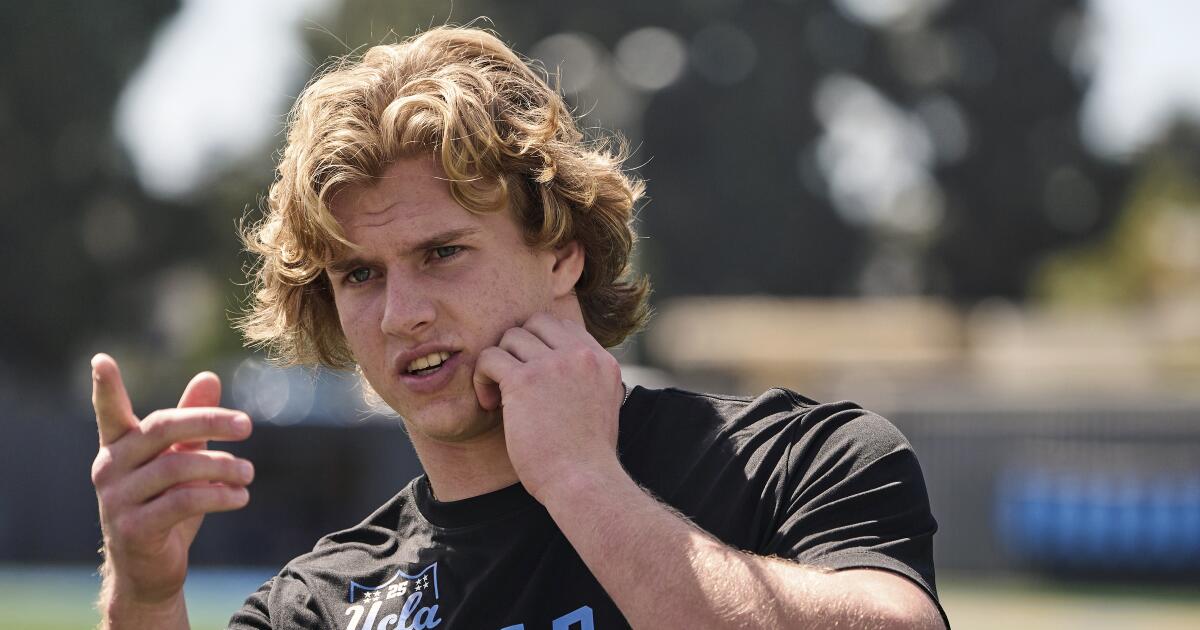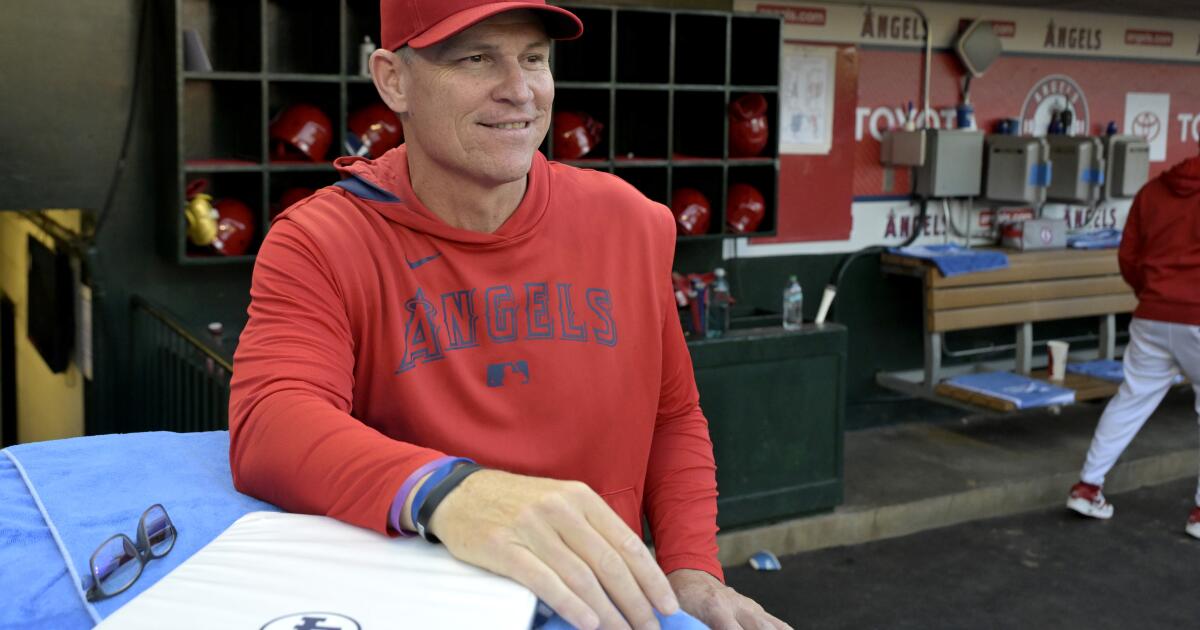Carson Schwesinger’s storybook rise continues as Browns draft him

There was a time when Carson Schwesinger had zero stars, zero college scholarship offers, seemingly zero hope to amount to much in football.
His high school coach pitched UCLA counterpart Chip Kelly on taking Schwesinger as a consolation prize after the Bruins lost out on fellow Oaks Christian linebacker Ethan Calvert, who was headed to Utah.
“I went up to coach Kelly and I said, ‘You might want to consider this kid Carson Schwesinger as a walk-on — he’s a poor man’s Ethan Calvert,’” Charles Collins told The Times last fall. “And what I meant by that was, he didn’t have all the hype but he was a football junkie, he had a passion for the game.”
Over the next few years, that passion propelled Schwesinger from walk-on to scholarship player to the Big Ten Conference’s leading tackler and a finalist for the Butkus Award that goes to the nation’s top college linebacker.
On Friday it made the Bruins standout a second-round pick of the Cleveland Browns at No. 33 overall, the first player from UCLA or USC selected in the NFL draft.
Schwesinger’s rise was rooted in something his father, Dennis, once told him.
“It doesn’t matter how good you think you are,” Carson said last season, repeating the message, “you’ve got to make sure that everybody else thinks you’re that good to where they have to put you in.”
That mantra drove him to block so many kicks as a member of UCLA’s scout team that Ikaika Malloe, then the Bruins’ special teams coordinator, promoted him to all four special teams units. Schwesinger earned a scholarship before the 2022 season and became a part of the rotation at linebacker for the next two seasons.
His full potential wasn’t unleashed until the third game of last season, when he became a starter as part of a lineup change that involved moving fellow linebacker Oluwafemi Oladejo to edge rusher. Schwesinger went on to lead the Big Ten with 136 tackles, logging double digits in nine games. His 90 solo tackles were the most by a Big Ten player in more than two decades, leaving his coaches in awe.
“He’s beating running backs to the holes at times,” Malloe said, “or what looks like he’s slipping blocks, he’s actually moving one block over from the guy that’s supposed to get him, so his instincts are really, really good.”
If it seemed like Schwesinger knew what the offense was going to do before the snap, it’s because he often did; his ability to diagnose presnap movement and tendencies helped him know where to go to make the play. Having previously played running back, wide receiver, offensive line, defensive line and safety meant that he knew what almost everyone else on the field was trying to do.
“I played a lot of running back in youth ball,” Schwesinger said, “so you just kind of end up getting a feel for where the backs are going to go.”
In his first season as UCLA’s defensive coordinator, Malloe designed his scheme so that plays would be funneled toward his top playmaker.
“It’s kind of funny to me,” Malloe said during the season, “because as the special teams coordinator he was the focus of the special teams and now as the defensive coordinator he’s the focus of the defense.”
Making the big time never prompted Schwesinger to big-time anyone because of a humble, hard-working nature that led teammate Bryan Addison to call him “Captain America.”
“He thinks of every rep at practice as the reason why he’s successful in the game,” Malloe said, “and I think his mindset, the fact that he wants to do that, is the reason he’s so successful in this game.”
On Friday, Schwesinger’s journey took another storybook turn.
“When you look at Carson’s story,” Collins said, “it’s not where you start, it’s where you finish. You know, you don’t have to be a five-star, you don’t have to be the guy that’s in lights. Hard work, it does pay off, and character pays off even more, so I think he’s a testament to hard work, faith and determination and character.”





